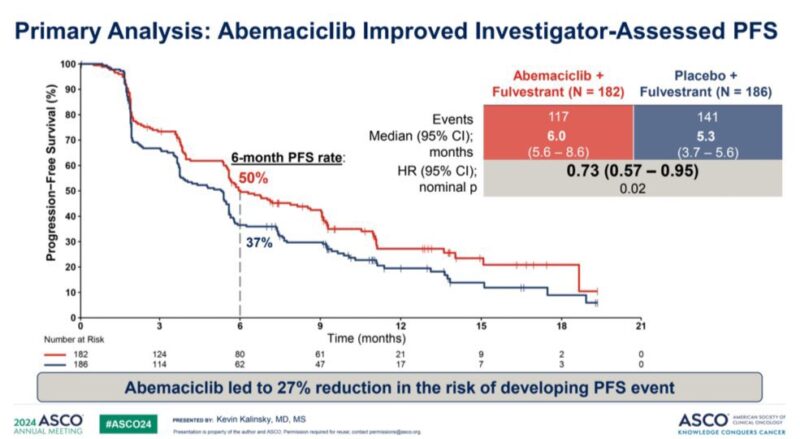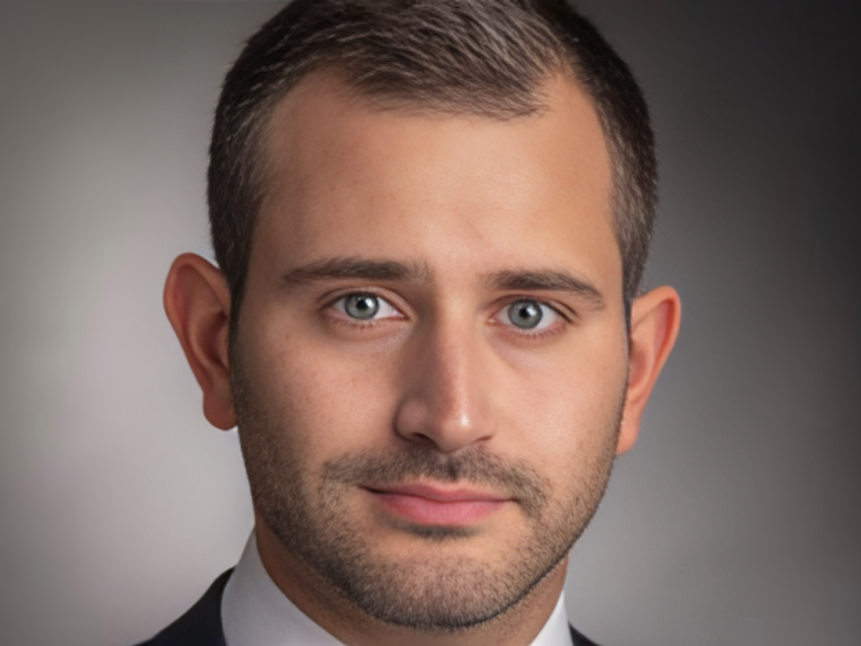Paolo Tarantino shared a post on X:
“Some thoughts on postMONARCH
– HR often provide a better estimate of benefit than medians. A 27% reduction in risk or progression or death is encouraging, as noted by many more patients free from events at 6 months with abema vs placebo (50% vs 37%).
– the control arm overperformed compared with prior trials. Unclear if this was due to chance or patients characteristics (or both).
– the toxicity profile of abema compares favorably with many other 2L options, making the combo appealing.
– the differential benefit based on prior palbo vs ribo is notable, but the analysis was underpowered. Not sure if we can read much into that.
– we still need to do better than 6 months PFS in 2L. Hoping that novel SERDs, PROTACs and beyond will take us closer to the 1-year threshold.
The addition of abemaciclib to fulvestrant improved PFS over fulvestrant monotherapy among patients with HR+/HER2- MBC that had previously progressed on CDK4/6 inhibitors (6.0 vs 5.3 mo, HR 0.73, p=0.02). ”

Source: Paolo Tarantino/X
Dr. Paolo Tarantino, MD researcher, holds positions at both the European Institute of Oncology in Milan, Italy, and the Dana-Farber Cancer Institute in Boston, MA, Specializing in breast cancer. Currently, Dr. Tarantino is pursuing an advanced research fellowship at Dana-Farber Cancer Institute and Harvard Medical School, concurrently working towards a PhD in clinical research at the University of Milan.
His research focuses on exploring the HER2 oncoprotein, investigating the emerging HER2-low subgroup of breast tumors, and developing novel antibody-drug conjugates targeting every subtype of breast cancer. With a robust publication record exceeding 50 papers on breast cancer, he is recognized as a leading expert in the field. Dr. Tarantino’s dedication and innovative approach contribute significantly to the advancement of breast cancer treatment and research.


